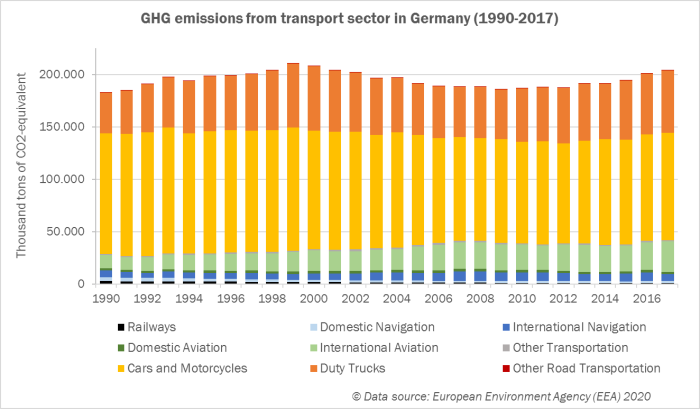Example Germany
Germany has set itself the goal of reducing greenhouse gas emissions by at least 40% by 2030 compared to 1990 levels (BMU 2016). In order to achieve this goal, significant changes are also required in the transport sector. This is because transport-related GHG emissions actually increased slightly between 1990 and 2017.
Although the specific fuel consumption of cars and trucks per kilometre has fallen, at the same time there are more vehicles and considerably more kilometres travelled by car, plane & Co and more goods are transported by road and water (BMU 2016).
Savings can be achieved, for example, by expanding public transport, alternative drive systems (especially electric vehicles, plug-in hybrid technologies) and efficiency improvements. Biofuels produced from waste and residual materials can also contribute to achieving climate protection targets.
A look at the DBFZ resource database shows how high this contribution could be. If, for example, half of the cereal straw not used so far were processed into biomethane, 85% of local public transport could be operated by road (mainly buses). A bus fleet with appropriate drives is of course prerequisite!

